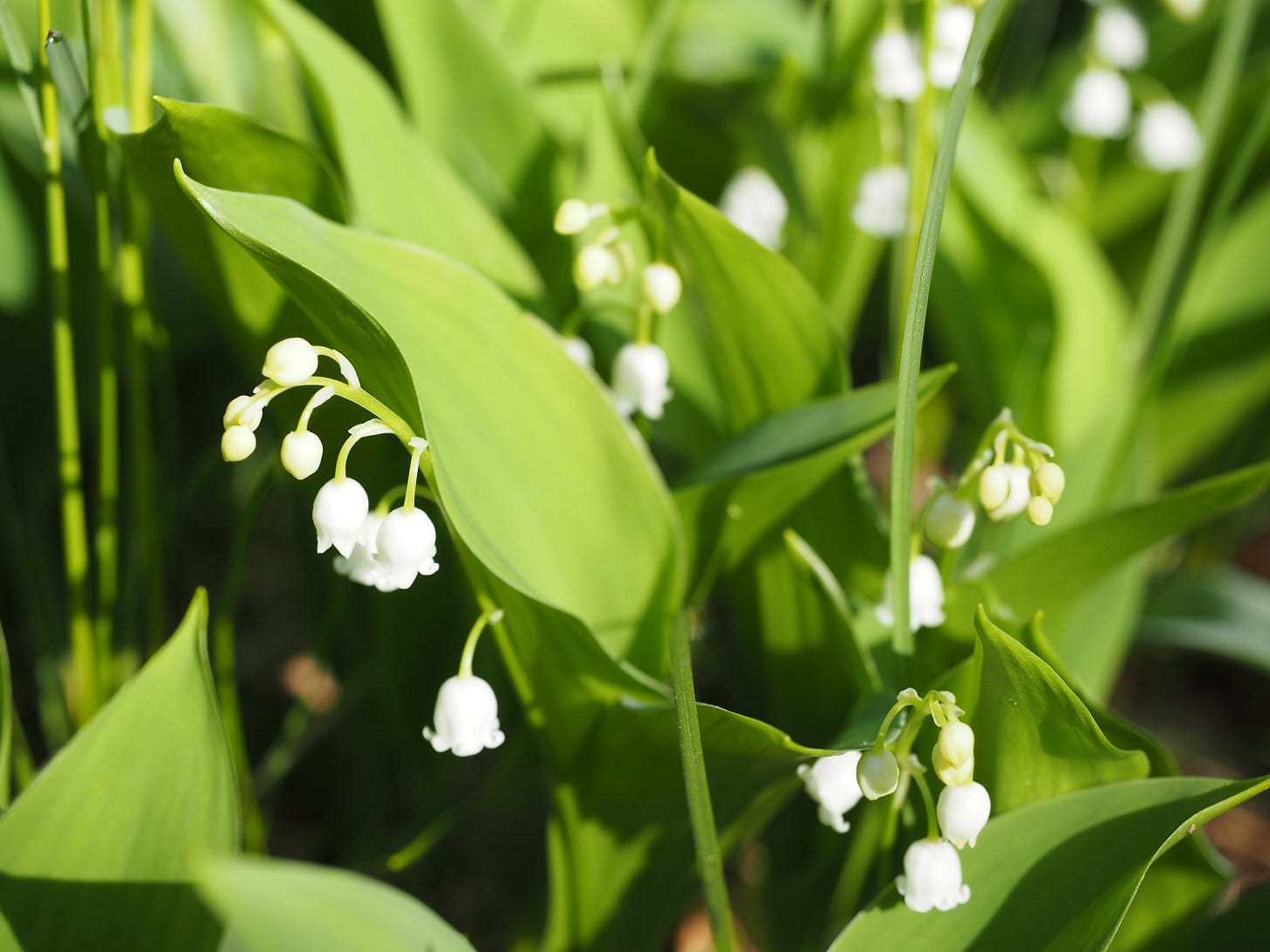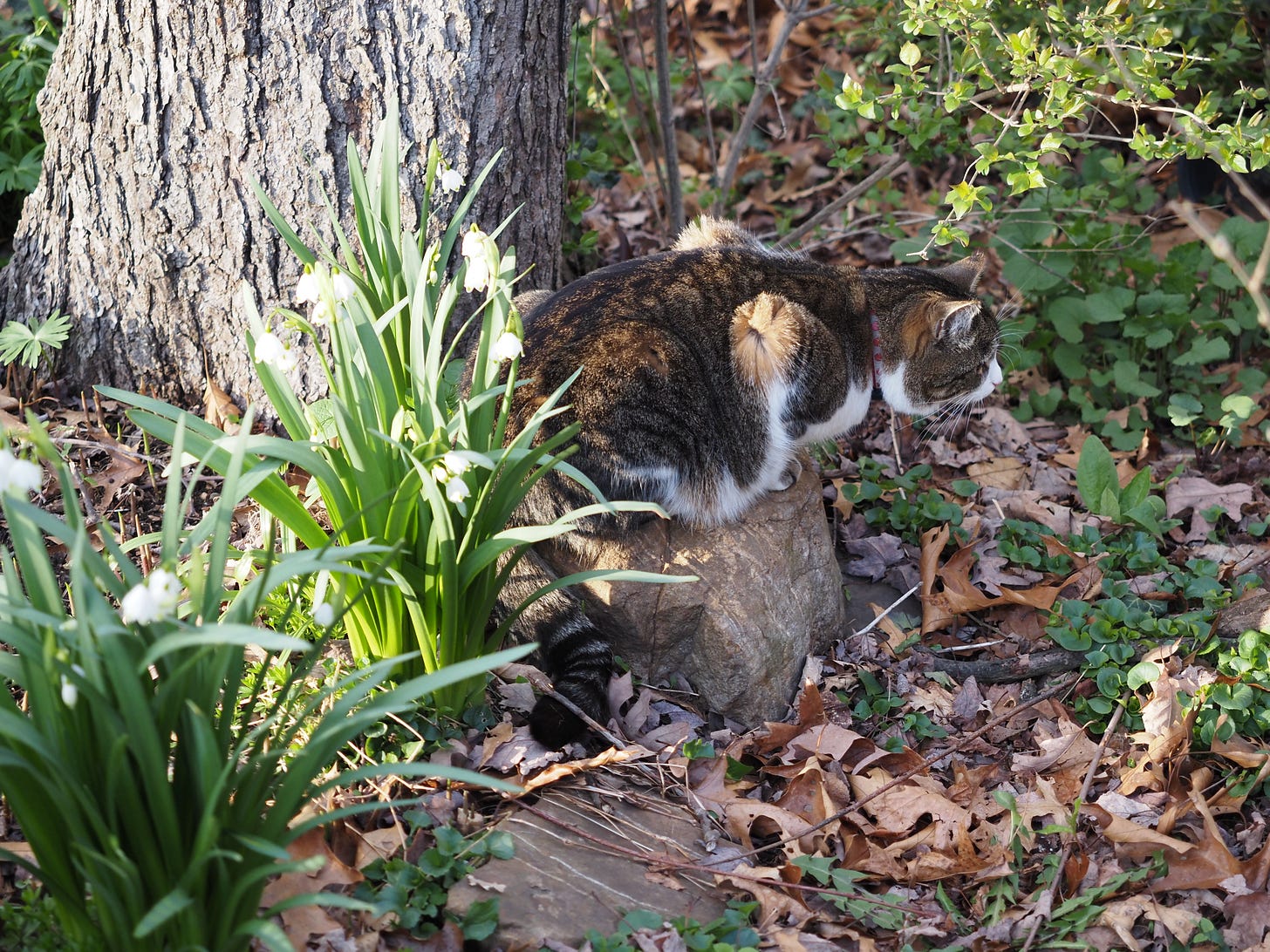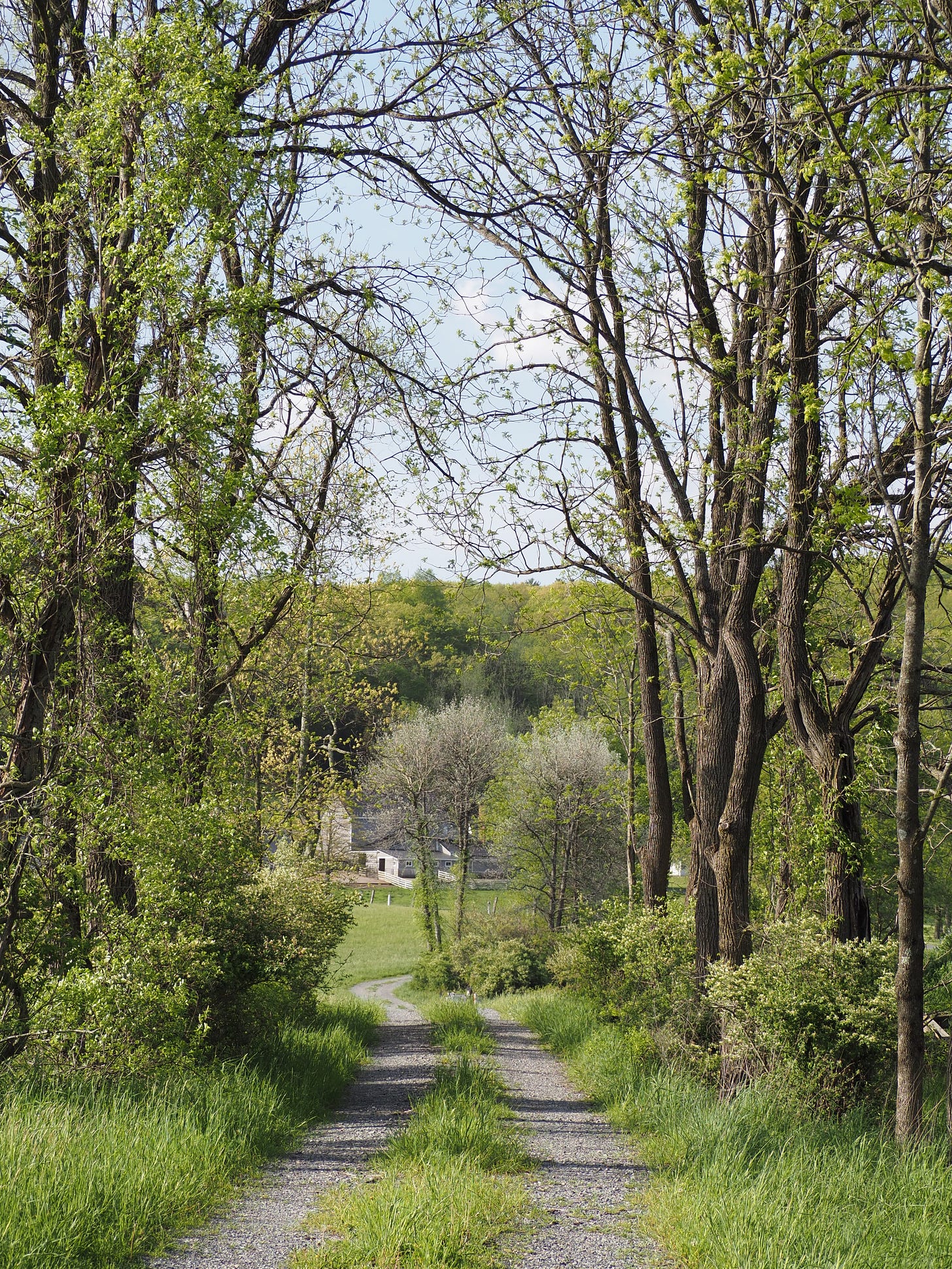You’re all invited into my garden this morning to sit in the soft spring air and admire the cheerful alliums as we have a cozy chat about books! We may be midway through May, but I still need to fill you in on my April reading…
Eight Cousins by Louisa May Alcott
“I remember hearing grandpa say that a love for good books was one of the best safeguards a man could have,” began Archie, staring thoughtfully at the fine library before him.
“Yes, but there’s no time to read nowadays; a fellow has to keep scratching round to make money or he’s nobody,” cut in Charlie, trying to look worldly-wise.
“This love of money is the curse of America, and for the sake of it men will sell honor and honesty, till we don’t know whom to trust, and it is only a genius like Agassiz who dares to say, ‘I cannot waste my time in getting rich,’” said Mrs. Jessie sadly.
Later Mrs. Jessie adds: ‘It would be far easier to see you dead if it could be said of you as of Sumner—’No man dared offer him a bribe.’” Louisa May Alcott sprinkles so many interesting references (like Agassiz and Sumner) into her dialogue - it makes you feel like you’re right there will the characters, part of their world, growing up and growing in character with Rose and her rambunctious cousins on “Aunt Hill.”
Out of Alcott’s works, Little Women tends to get most of the attention, but I think Eight Cousins deserves more acclaim! I might even prefer Rose’s story to Little Women - having four brothers myself, I loved the brotherly antics of Rose’s seven boy cousins. Uncle Alec and Phebe also add so much to the tale in the way that they inspire and guide and support Rose - and the way she inspires, guides, and supports them. I’m so glad I had the spur of Alcott April to inspire me to pick this up, and I continued on in May with the sequel…
Rose in Bloom by Louisa May Alcott
“A fellow can’t spend ‘A Week’ with Thoreau and not be the better for it. I’m glad I show it, because in the scramble life is to most of us, even an hour with such a sane, simple, and sagacious soul as his must help one.” said Mac, taking a much worn book out of his pocket with the air of introducing a dear and honored friend.
The challenge that I gave for Alcott April was to read a book written by one of Louisa’s neighbors at Orchard House in Concord, MA, and Rose in Bloom indirectly fulfilled that prompt because the characters discuss works by two of Alcott’s real-life neighbors and friends, Henry David Thoreau and Ralph Waldo Emerson. I had to wonder if the character of Uncle Alec was inspired by Thoreau, who was once in love with and even proposed to the same woman as his brother. The way Uncle Alec fits out Rose’s room with treasures from around the world in the first book reminds me of the way Thoreau fills writings like Walden with insights from literary traditions from around the world. In this second book in Alcott’s series, we see Rose as a young lady facing new trials and striking out on her life as an adult. I would highly recommend both Eight Cousins and Rose in Bloom!
I need to go and read these full essays now, but here are two of the snippets of wisdom Louisa passes along from her friends by way of Mac and Rose…
“A Week on the Concord and Merrimack Rivers” by Henry David Thoreau
“At least let us have healthy books. Let the poet be as vigorous as a sugar maple, with sap enough to maintain his own verdure, besides what runs into the trough; and not like a vine which, being cut in the spring, bears no fruit, but bleeds to death in the endeavor to heal its wounds.”
“Heroism” by Ralph Waldo Emerson
“The fair girl who repels interference by a decided and proud choice of influences inspires every beholder with something of her own nobleness; and the silent heart encourages her. O friend, never strike sail to a fear! Come into port greatly, or sail with God the seas.”
The Pilgrim’s Regress by C.S. Lewis
“Can you not remain in doubt?”
“I don’t know that I have ever tried.”
“You must learn to, if you are to come far with me. It is not hard to do it. In Eschropolis, indeed, it is impossible, for the people who live there have to give an opinion once a week or once a day, or else Mr. Mammon would soon cut off their food. But out here in the country you can walk all day and all the next day with an unanswered question in your head: you need never speak until you have made up your mind.”
The character Reason is speaking in the above passage, and I love the scene where she comes riding in on her horse to save the day. There were so many scenes, themes, and reflections to love in The Pilgrim’s Regress! I read the famous Pilgrim’s Progress last spring, and I was so fascinated when I found out (hat tip to Christy) that C.S. Lewis did his own retelling of the classic, weaving in many allusions to modern problems and modes of thought. He uses the same allegorical style, and his characters traverse the same landscape, although time has passed and some landmarks have changed. Lewis’s observations about modern technology were very on the nose.
“It is the same with all their machines. Their labour-saving devices multiply drudgery; their aphrodisiacs make them impotent: their amusements bore them: their rapid production of food leaves half of them starving, and their devices for saving them have banished leisure from their country. There will be no radical change. And as for permanence - consider how quickly all machines are broken and obliterated. The black solitudes will some day be green again, and of all cities that I have seen these iron cities will break most suddenly.”
Maps of Meaning by Jordan B. Peterson
Despite our great storehouse of culture, despite the wisdom bequeathed to us by our ancestors, we are still fundamentally ignorant and will remain so no matter how much we learn. The domain of the unknown surrounds us like an ocean surrounds an island. We can increase the area of the island, but we never take away much from the sea.
I’ve heard Jordan Peterson mention his 1999 psychological work many times in his lectures, and I’m very excited to be reading it with Christy this year. Delving deep into psychology and neuroscience, Maps of Meaning examines how a merely scientific lens is not sufficient to comprehend ourselves or the world around us. We can’t escape the domain of myth and meaning: it’s a reality built into us at the most fundamental levels. Our brains operate on the level of not only “known” but also “unknown.” They apprehend value, valence, and potential just as much as (if not more so than) they apprehend facts.
So far I’ve been listening to the audiobook, but Porthos tells me he has a physical copy of this stored away somewhere in his knowledge cubes that I’m hoping to pilfer (Porthos, if you’re reading, please consider this a formal request to borrow it). There are so many interesting observations that I think I would absorb better if I was reading the physical book. Earlier this spring I went to see JBP speak live and in person during his We Who Wrestle With God Tour, and it was such a treat!

Jesus of Nazareth by Pope Benedict XVI
The disciple who walks with Jesus is thus caught up with him into communion with God. And that is what redemption means: this stepping beyond the limits of human nature, which had been there as a possibility and an expectation in man, God’s image and likeness, since the moment of creation.
I’m only a few chapters into Pope Benedict XVI’s book about the life and teachings of Christ, but already I’ve been so inspired by how he talks about Christ’s dual importance as a historical figure and as a friend who walks with us today. Benedict draws out nuance so well, showing how Scripture is both a record of factual events and a living document. I can’t wait to read more!
Neither the individual books of Holy Scripture nor the Scripture as a whole are simply a piece of literature. The Scripture emerged from within the heart of a living subject - the pilgrim People of God - and lives within this same subject.
Love and Responsibility by Karol Wojtyla
No one may use a person as a means to an end: neither any man nor even God the Creator. Indeed, this is excluded most completely on the part of God, because he, by the very fact of giving a rational and free nature to the person, decided that the person himself will define the ends of action and will not serve as a tool for the ends of others. Therefore, if God intends to direct man to some ends, first and foremost he lets him know these ends, so that man can make them his own and strive for them on his own. In this, among others, lies the deepest logic of Revelation: God lets man know the supernatural end, but the decision to strive for this end, its choice, is left to man’s freedom. Therefore, God does not save man against his will.
John Paul II wrote this before he became pope, and it is a deep, philosophical, scholarly, and thoughtful analysis of the true nature of love, freedom, human dignity, masculinity, and femininity - topics about which our culture today is decidedly confused. I’ve been reading this slowly for the last few months, and it will probably take me several more months to finish, but there is so much goodness and wisdom to soak in, I think it’s good to take it slowly. I purchased Love and Responsibility as well as Theology of the Body earlier this year as I wanted to have some JPII on my shelves. When I started paging through both, I found L&R pulled me in a bit more, but I am hoping to get to Theology of the Body at some point as well - maybe in 2025, ha!
I need to sit down and make some more concrete reading plans for summer, which is fast approaching! One book I know I’ll be starting soon is Pat of Silver Bush by L.M. Montgomery, our book club pick for this month. If you’re interested in joining the book club and our discussion, be sure to send me an email: emma@bookishprincess.com.
Happy spring reading, friends!


















Share this post